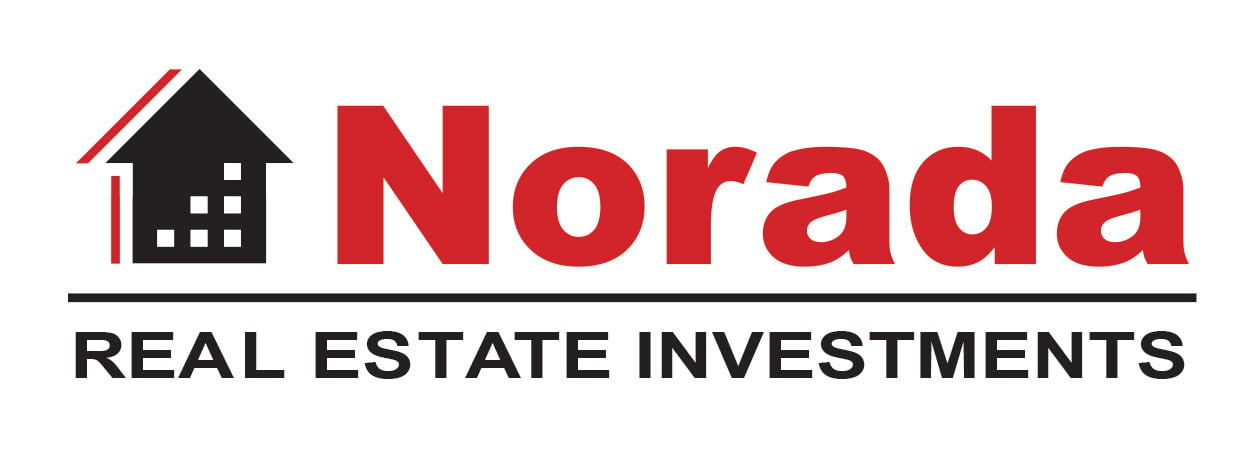Norada Real Estate Investments Reviews: How Do They Compare to Rent to Retirement?
Norada Real Estate Investments specializes in building, renovating, and sellingturnkey properties to investors. Want to know more about the company,...
4 min read
Rent To Retirement : Oct 11, 2024 9:23:46 AM

Buying cash flow real estate is one of the tried-and-true ways to achieve financial freedom and build long-term wealth. In this guide, we’ll show you how to calculate this crucial metric, where to find the most profitable investment properties, and how to increase the cash flow of any rental property!
Summary
In rental property investing, cash flow is the net profit (or loss) from your investment property. It refers to the money moving in and out of your business and is calculated by subtracting your total expenses from your total income.
Calculating your cash flow is a crucial step when analyzing an investment property. By doing your due diligence upfront, you can weed out any negative cash-flowing assets before you buy!
First, determine how much rent to charge and tally all of your property’s expenses. Be sure to account for your mortgage, insurance, taxes, maintenance and repairs, property management, and any other costs required to operate your property.
Then, figure your cash flow in two minutes or less by plugging each number into our cash flow calculator!
Using our calculator is the easiest and most accurate way to calculate cash flow, but you can also determine your cash flow by hand. Simply use the formula below:
Rent - Fixed Expenses - Variable Expenses = Cash Flow
Rental property investing has its fair share of fixed and variable costs, and each line item reduces your cash flow. Make sure you account for all expenses and understand how each of them affects your bottom line:
Did you know turnkey real estate has significantly lower maintenance costs than the average rental? If you’re looking to invest in new or newly renovated, leased, and managed rental properties, schedule a consultation with our team below!
What does real estate cash flow typically look like? Let’s say you have a turnkey rental with the following expenses:
Now, imagine that this property brings in $2,400 in monthly rent. Subtract your total monthly expenses above from your rent to calculate your cash flow:
$2,400 (rent) - $2,060 (expenses) = $340 cash flow per month!
Looking for turnkey properties just like this?
Not every investment property is going to meet your cash flow goals. Here are a few crucial tips for finding rental properties that make a profit!
You might need to look beyond your backyard to find a great place to invest. High-cash-flow markets typically have diverse economies, steady population and job growth, and high rental demand. Keep in mind that cash flow can vary from one zip code to the next, so you should niche down to specific neighborhoods during your search.
Rent to Retirement offers rental properties in markets just like this. Browse our turnkey rental properties for sale!
In expensive markets, properties may fall outside your price range (as well as your renters’ price range!). Look for areas that have below-median home prices but average rent prices. Many midwest and southern markets are attractive to investors, as they have affordable homes that command fair rents.
Maintenance and repair costs can wipe out your cash flow, especially if you own an old or distressed home that requires constant upkeep. Newly renovated homes or build-to-rent homes, on the other hand, tend to have fewer maintenance costs and allow you to charge higher rents.
If you have an underperforming property, or you want to get more profit out of your property, there are several strategies you can use to boost your cash flow.
Renovation projects will require you to invest some money into your property upfront, but these changes will pay for themselves over time. For one, home improvements allow you to set higher rents and attract more high-quality tenants. Better yet, high-ROI renovations will force appreciation and increase your property’s value!
Some landlords avoid rent increases for fear of losing tenants. Even if raising rent causes temporary turnover or vacancy, it won’t take long to recuperate these costs with higher-paying tenants. Are your rents too low? Use Rentometer or BiggerPockets Rent Estimator to quickly estimate how much rent you should charge.
If you’re currently paying for utilities, consider passing these costs on to your tenants instead. This simple adjustment could generate hundreds of dollars in additional cash flow. If you invest in multifamily real estate, you could even create a ratio utility billing system (RUBS), which allows you to bill each tenant for a percentage of their building’s utilities each month. Just make sure local regulations permit this type of program!
Property management fees can quickly eat into your profits. If you have the time and energy to self-manage your rentals, you can cut another costly line item from your budget and increase your cash flow. This may not be an option for out-of-state investors, so make sure you hire a reasonably-priced property manager you know, like, and trust.
Savvy investors know that rent is just one of many income streams an investment property can generate. Consider charging tenants for pets, parking, laundry services, storage, additional services, and other amenities. Increasing your property’s income without major changes to your expenses will improve your cash flow!
Real estate cash flow unlocks all kinds of wealth-building opportunities for investors. It could allow you to replace your W-2 income and leave your nine-to-five job, save for retirement (or retire early!), or reinvest your profits and scale your portfolio.
Looking to buy a high-cash-flow rental property? Start with turnkey rentals. These move-in-ready properties have lower maintenance and repair expenses than most rentals, allowing you to make a profit on day one. Rent to Retirement has turnkey rental properties available in several high-cash-flow markets!
Cash flow is the net profit (or loss) your rental property generates each month. You can use positive cash flow to grow your bank account, save for early retirement, or build an even bigger portfolio!
You might have a cash flow goal, such as $150 per unit per month, but “good” cash flow varies from investor to investor and market to market. Cash-on-cash return may be a better indicator of your actual cash flow return.
Your cash flow is determined by your rent, variable expenses, and fixed expenses. Tally these line items and plug them into the formula below to quickly calculate your cash flow:
Rent - Variable Expenses - Fixed Expenses = Cash Flow

Norada Real Estate Investments specializes in building, renovating, and sellingturnkey properties to investors. Want to know more about the company,...
Turnkey properties are often overlooked in the world of real estate investing.

Real estate is one of the best investment vehicles for wealth creation, and there are many ways to get started. In this complete guide to real estate...